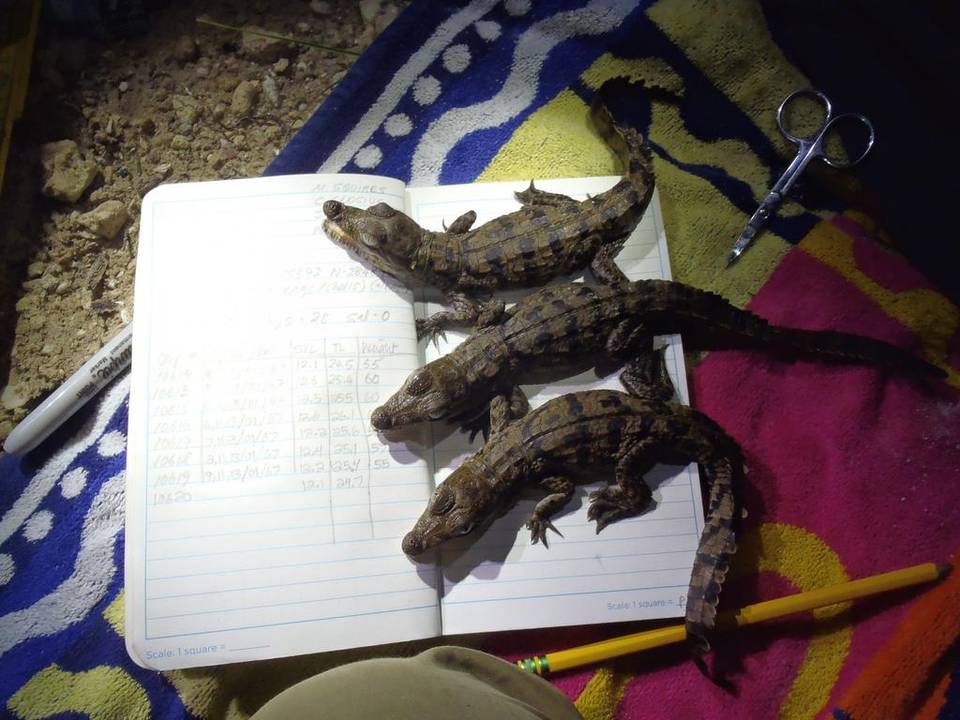
IMAGE SOURCE: Miami Herald
By Jenny Staletovich from the Miami Herald
August 2, 2015
To the surprise of biologists, a Virginia Key beach restored to lure sea turtles has become an incubator to some unlikely babies: rare American crocodiles.
Last month, the baby crocs hatched from the first nest ever documented on the urban island that links the city of Miami to Key Biscayne. After incubating for 84 days, a team from the University of Florida and the Patricia and Phillip Frost Museum of Science helped tag 13 crocs on July 26.
Biologists tagged and measured 13 baby American crocodiles that hatched on Virginia Key this month. The nest is the first ever documented on the urban island that is also home to one of the county’s largest wastewater treatment plants.
Biologists tagged and measured 13 baby American crocodiles that hatched on Virginia Key this month. The nest is the first ever documented on the urban island that is also home to one of the county’s largest wastewater treatment plants. The Patricia and Phillip Frost Museum of ScienceCourtesy of
“To get a nest where we’ve never had one before is very cool,” said UF biologist Frank Mazzotti, who plans to alert U.S. Fish and Wildlife officials.
Home to the county’s oldest wastewater treatment plant, the island has been an ongoing battleground between developers, who want to spruce up the old Marine Stadium, host an international boat show and build a parking garage, and conservationists, who have been working to restore the island’s native habitat. Link to the entire article is here:
